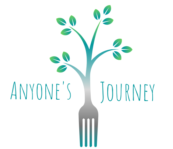Do you find yourself setting rules about food? Maybe deciding you can’t snack before bed or only eating dessert once a week.
In a world where diet culture influences many of our daily decisions, rules around eating are no exception.
This blog aims to shed light on the complexity of food rules and empower you to have a healthier relationship with food and your body.
Let’s dive in!
What is a Food Rule?
A food rule is a set of guidelines or principles that drive dietary habits and choices. These rules can include the types of food to eat, the ways to eat, how to prepare specific foods and when to eat.
Food rules vary widely in nature and severity, but generally revolve around controlling, limiting or restricting certain foods or food groups. They are also paired with feelings of guilt, shame or fear.
Food rules can be influenced by health considerations and religious beliefs. However, more often than not, they are driven by an individual’s distorted beliefs about body image, self-worth or the need for control.
Food rules can quickly turn into disordered eating patterns, trigger eating disorder symptoms and shape an individual’s relationship with food.
Examples of Food Rules
- Only eating a certain number of times per day.
- Not eating after 8:00pm.
- Avoiding all processed foods.
- Only allowing dessert once a week.
- Clearing the plate every time.
- Working out to “earn” the food that will be eaten later in the day
- All carbs are “bad” or “unhealthy”
Do any of these sound familiar? One or multiple of these examples could resonate with you. This list could also spark thoughts about other food rules that you have created over time.
Diet culture and other various factors can persuade you into thinking that these food rules are “correct”, “healthy” and “normal”. The reality is these rules about eating can lead to a poor relationship with food and a disconnection from your body.
How Do We Get Food Rules?
Food rules can originate from a variety of sources, but we often see these rigid sets of rules occur due to social pressures. Between social media, friends, family and coworkers, we can unintentionally create these rules around food.
What may start as a “healthy habit” can turn into a disordered pattern of eating that forces you to rely on external information to make choices.
How To Break Food Rules?
The best way to break a food rule is to start by identifying the rules that you are currently following. By uncovering, you can start to understand where the rules originated from and how to let go.
Breaking food rules is a process that takes time and patience. However, it is never too late to get started.
Let’s talk about 3 steps that you can take right away:
- Make a List
Start by writing down a list of any current food rules. This list may be small to start but expand as you start to reconnect with your body and bring awareness to the decisions you make about food.
If you are struggling to make this list, ask yourself the following questions the next time you are meal prepping or eating:
- Am I eating what I want or what I think I should have?
- How do I determine the portion that I am going to eat?
- Why did I pick this time to eat?
- Pick a Food Rule
After the initial list has been created, pick any rule. You can start at the top of the list or pick the very last one you wrote.
- Break the Rule & Repeat
Now, it is time to break that rule! This will require creating a plan and sticking to it until the fear, guilt or shame is gone.
For example, if you have a rule that you must be done with food for the day at 6pm due to being fearful of eating excess calories, allow yourself to become aware of hunger/fullness cues around that time.
Have a planned snack such as pretzels with peanut butter that you eat every evening or at least 50% of nights in the week. Allow yourself to break the rule of “no food after 6pm” by having this snack until the fear disappears. Over time, you will learn to check in with what your body is asking of you instead of making choices based on a food rule.
Once you break the rule, repeat this three step process until your list is complete.
How Long Does it Take?
Breaking food rules is an individualized process. There is not a specific timeline that must be followed. Instead, breaking these rules is dependent on the person and severity of the rule.
Some people might be able to challenge and break certain food rules relatively quickly, while others may require more time and support to overcome the fear, guilt and shame associated.
Seeking professional help can significantly speed up the process and provide the guidance for sustainable change.
The clinicians at Anyone’s Journey value working at a pace that is comfortable for each client but also recognizing when that extra push to reach their goals is needed.
Can Food Rules Come Back?
Yes, food rules can resurface, and new ones can develop.
If you find a food rule is back and you are struggling with feelings of guilt, stress or shame, refer back to our three-step process and reach out to your support team.
Most importantly, know that you did absolutely nothing wrong if a food rule reappears.
During treatment, our clients gain a deep understanding of their thoughts and feelings around food and their body. They learn to identify triggers that cause a reappearance of food rules.
Ultimately, our clients develop a heightened self-awareness and connection with their body that allows them to have a greater resilience to handle challenges.

How Can a Registered Dietitian Help?
Registered dietitians are experts in the field of nutrition and can help meet you where you are at in your nutrition journey.
Our job as dietitians is to help fact-check trends around food that may or may not be accurate. As we work through food rules together, we can provide accurate information based on research. This allows each client to build their own food philosophy based on facts instead of adopting one from social media.
Here at Anyone’s Journey, we focus on individualized care. Nutrition and body image are often deeply personal, and we don’t take that for granted. When you work with one of our registered dietitians, you can expect compassionate care from experts who will listen to your story.
Walking with you each step of the way, our dietitians are trained to help you recognize food rules, challenge feelings and emotions related to health and hold you accountable as you strive to break down barriers and have a healthier relationship with food and your body.
Contact us by calling 612-638-2778, emailing contact@anyonesjourney.com or completing our Referral Form.

